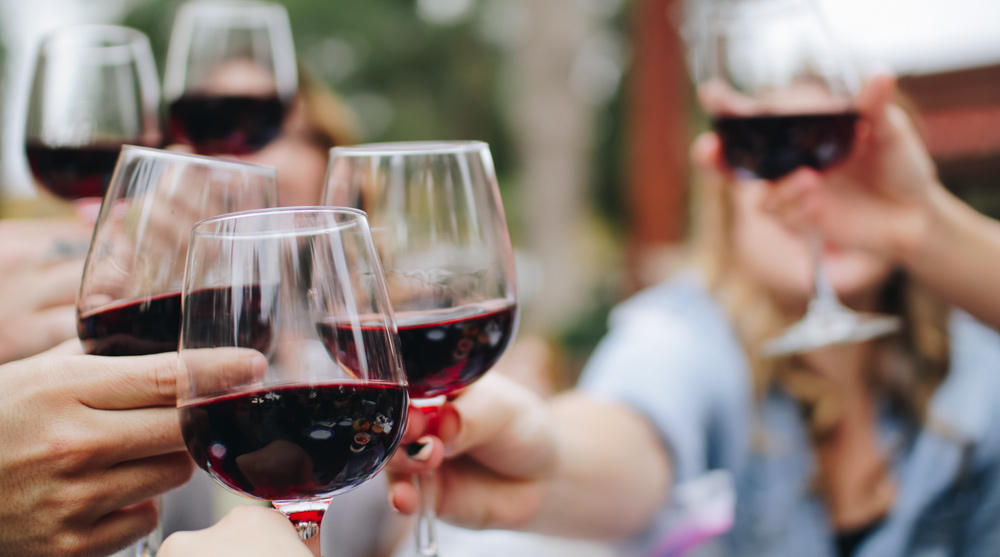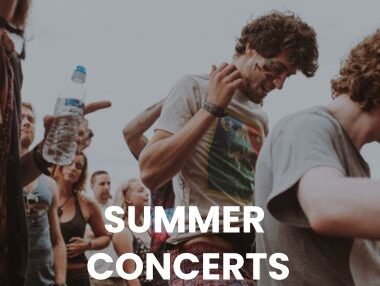Planning the Ultimate Wine Festival: An In-depth Guide for Winery Event Organizers
The allure of a wine festival goes beyond just the enticing aromas and sophisticated flavors. It’s an enchanting blend of cultural experiences, vibrant ambiance, and shared memories. For event organizers, crafting such an event is a significant undertaking.
This expanded guide will delve deeper into creating a seamless and memorable wine festival experience.
1. Building an Online Registration System
With the advent of intuitive online systems, attendees can experience unparalleled ease of access. They can effortlessly register, cherry-pick their desired events, and even make bespoke requests all in one place.
- Online payments reducing ticket lines and cash handling
- Real time stats, tracking and reports
- Accounting and invoice support
- Online sales of custom ticket packages or merchandise
- Ability to create deals for wine club members
- and more!
There is so much you can do when building your online registration in order to create a seamless check-in process.
2. Offer Specialized Tickets and Loyalty Perks
Return attendees can expect priority access to workshops, exclusive festival merchandise, and perhaps even a surprise bottle from a mystery vineyard. There are so many ways you can build an event that provides exclusivity to your loyal members.
- Exclusive Offers for Wine Club Members: Beyond discounts, consider organizing pre-festival mixers or preview tastings for club members only.
- Customized VIP Experiences: Elevate the VIP experience by offering curated wine hampers, behind-the-scenes tours, sessions with renowned sommeliers and even priority or special seating areas.
-
Flexible Tasting Passes: Instead of a flat rate, offer tiered passes based on the number of tastings, allowing attendees to choose based on their interests and budget.
These are some ways to make your members feel special.
3. Build Robust Communication Strategies
It's crucial to build strategies for communicating with guests before, during and after the event for streamlned communication lines. Here are some ideas for building those channels for your festival:
-
Consistent Branding: Ensure all communication channels, from websites to social media, maintain consistent festival branding for immediate recognition.
-
Multi-channel Approach: Utilize a variety of platforms such as newsletters, social media, and email campaigns to provide event updates and highlight exclusive features.
-
Real-time Updates: Consider a dedicated event app or SMS alerts to keep attendees informed of event schedules, last-minute changes, or exciting happenings during the festival.
-
Post-event Communication: Engage attendees after the event by soliciting feedback through surveys, which fosters community and provides valuable insights for future improvements.

4. Collaborate with Artists or Talent
When hosting a wine festival and aiming to collaborate with talent or artists for promotional purposes, event organizers must take a strategic approach. Here are some key considerations:
-
Identify Relevant Talent: Seek out artists or influencers who have a genuine affinity for wine or whose audience aligns with your target demographic. This ensures authenticity in the collaboration.
-
Mutually Beneficial Arrangements: Offer incentives such as exposure to your audience, exclusive festival perks, or a special tasting session, ensuring that the collaboration is advantageous for both parties.
-
Clear Communication: Clearly outline expectations, deliverables, and timelines to avoid any misunderstandings and ensure smooth collaboration.
-
Leverage Diverse Platforms: Utilize the talent's preferred social media channels, be it Instagram Live sessions, YouTube vlogs, or Twitter shoutouts, to reach different audience segments effectively.
-
Feedback Loop: After the event, engage in a feedback session with the talent to understand what worked and what can be improved for future collaborations.
By harnessing the influence and reach of artists or talent, event organizers can significantly amplify their promotional efforts, ensuring a successful and well-attended wine festival.
5. Branding and Marketing Materials
Create a brand that is known and recognizable prior and during the event. This can be done via the following:
-
Themed Color Palette: Choose wine-related colors or themed colors to set the mood and evoke the spirit of the event.
-
Festival Tagline: Develop a catchy, succinct tagline that encapsulates the festival's vibe and ethos.
-
Custom Illustrations: Incorporate illustrations of vineyards, wine glasses, your logo or event branding throughout the event setup to create a collaborative scene.
-
Wine Stories: Create short narratives or profiles of featured vineyards and winemakers to provide depth and context to the event and/or it's history.
-
Interactive Maps: Design maps highlighting festival zones, wine tasting areas, and vendor locations, making navigation easier for attendees if it's a larger event and venue.
-
Social Media Templates: Develop customizable templates for announcements, countdowns, and features to maintain a consistent look on platforms like Instagram, Twitter, or Facebook.
-
Print Material: Design brochures, flyers, and posters with captivating visuals and key festival information for distribution in local establishments or wine shops.
-
Merchandise: Create branded merchandise such as wine glasses, tote bags, or t-shirts that attendees can purchase or receive as part of special packages.
-
Augmented Reality (AR) Features: Offer AR experiences, like virtual vineyard tours or wine pairing suggestions, accessible via smartphone apps or festival QR codes.
By intertwining creativity with brand consistency, these ideas can serve as a foundation for a successful branding and marketing campaign for any wine festival.
6. Perfecting the Venue Ambiance
For a wine festival to truly resonate with its attendees, every element needs to harmonize with a central theme. Whether you're evoking the rustic allure of a traditional vineyard or the sleek sophistication of modern elegance, every detail, from décor to staff attire, should reflect this chosen ambiance.
This cohesion should seamlessly extend to your branding. To further captivate your audience, consider incorporating Interactive Zones. Imagine a "Scent Station" that offers attendees the opportunity to immerse themselves in the diverse and rich aromas characteristic of different wines. Or perhaps, introduce a "Grape Stomp" section, offering a playful nod to the timeless art of winemaking, allowing guests to relive and appreciate the age-old tradition.
Additionally, Wine Education Booths can significantly enhance the attendee experience. By setting up booths dedicated to the rich tapestry of wine history, nuanced tasting techniques, or the art of perfect food pairings, you not only entertain but also educate, ensuring that attendees leave with both delightful memories and newfound knowledge.
|
Sell more than just tickets! Not just for ticket sales, you can sell merchandise, |
7. Comprehensive Media and Marketing Approach
- Leverage Local Media: Engage local TV and radio stations. Organize interviews with the winemakers or festival previews.
- Dynamic Social Media Engagement: Beyond regular updates, consider live streaming parts of the festival, hosting virtual wine-tasting tutorials, or even interactive quizzes about your winery.
- Collaboration with Lifestyle Influencers: Engage influencers beyond just wine experts. Lifestyle, travel, or gourmet food influencers can provide fresh promotional angles.
8. Prioritizing Safety and Comfort
The COVID-19 pandemic underscored the importance of safety and health at events. Moving forward, it's crucial to make these priorities at your gatherings.
- Accessible Transport Options: Collaborate with transport services to offer shuttle buses or discounted rides for attendees, ensuring everyone get there and home safely.
- Comfort Zones: Set up areas with seating, shade, and hydration, ensuring attendees can take a break and refresh.
- Signage & Communication: Use clear signage to communicate guidelines and expectations. Inform attendees in advance about safety protocols.
- Touchless Systems: Implement touchless payment methods, ticket scanning, and registration processes.
- Hygiene Stations: Set up hand sanitizing stations throughout the venue, and promote regular handwashing.
- Virtual Options: Offer online streaming or virtual attendance options for those who prefer not to attend in person.
- Flexible Refund Policies: Allow attendees to cancel or reschedule if they feel unwell or are uncomfortable attending due to sudden changes in the pandemic situation.
- Staff Training: Train event staff on health and safety protocols, ensuring they can guide attendees and respond to issues.
- Dedicated Health Personnel: Depending on the size and nature of the event, consider having medical staff or a first aid station on site.
 In Conclusion
In Conclusion
Organizing a wine festival is akin to crafting a fine wine. It requires patience, meticulous planning, and an understanding of the varied palates of your audience. Each detail, from ticketing nuances to venue aesthetics, plays a pivotal role in determining the event's success.
But, with passion and dedication, your wine festival can become an eagerly anticipated annual event, offering attendees not just a taste of your finest wines but a bouquet of unforgettable experiences. Here’s to crafting an event as timeless and delightful as a vintage wine. Cheers!







